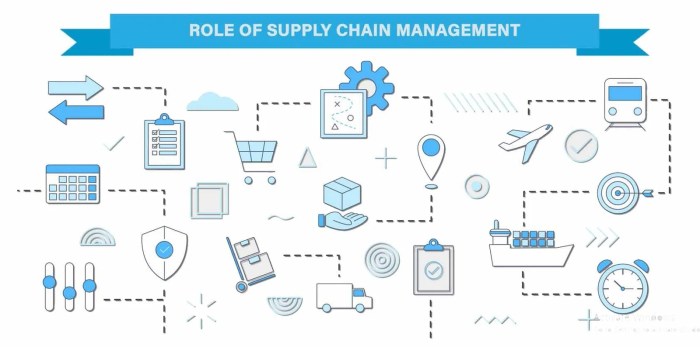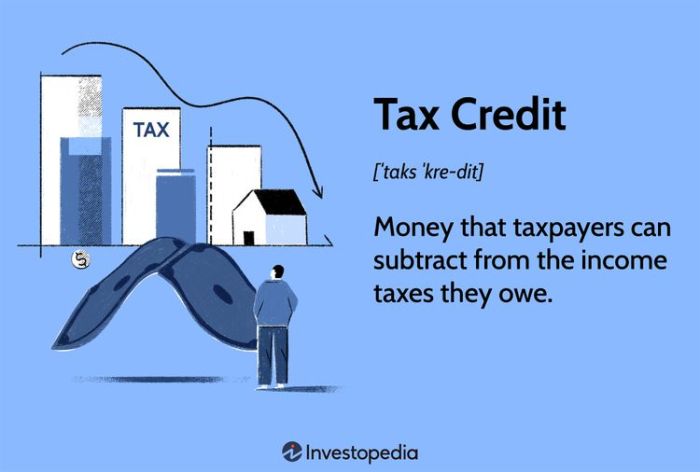The Significance of Tax Compliance in Business Accounting is paramount for sustained financial health and operational success. Navigating the complex web of tax regulations is crucial for any business, regardless of size. Failure to comply can lead to significant penalties, legal ramifications, and reputational damage, ultimately hindering growth and profitability. This exploration delves into the multifaceted aspects of tax compliance, from understanding legal obligations and implementing sound accounting practices to leveraging technology for efficient tax management and strategic long-term planning.
Understanding tax compliance isn’t just about avoiding penalties; it’s about building a robust financial foundation. This involves meticulous record-keeping, employing appropriate accounting methods, and proactively engaging with tax professionals to optimize tax strategies. This comprehensive guide provides a framework for businesses to confidently navigate the complexities of tax compliance, fostering sustainable growth and financial stability.
Legal and Regulatory Aspects of Tax Compliance: The Significance Of Tax Compliance In Business Accounting

Tax compliance is not merely a matter of good business practice; it’s a legal obligation with significant ramifications for businesses of all sizes. Failure to comply with tax regulations can lead to severe financial penalties, legal repercussions, and reputational damage, ultimately threatening the viability of the enterprise. Understanding the legal framework and potential consequences is crucial for responsible business operation.
Legal Ramifications of Non-Compliance
Non-compliance with tax regulations exposes businesses to a range of legal actions. These can include audits, investigations by tax authorities, and ultimately, legal proceedings. Depending on the severity and nature of the non-compliance, businesses may face criminal charges, including fines and even imprisonment for individuals involved in tax evasion or fraud. Civil penalties, such as interest charges on unpaid taxes and additional assessments, are also common. Furthermore, the loss of business licenses or permits can cripple operations, while reputational damage can severely impact future business opportunities. The severity of penalties is often determined by factors like the amount of tax evaded, the intent behind the non-compliance (intentional evasion vs. unintentional error), and the business’s history of tax compliance.
Penalties and Consequences of Tax Evasion or Inaccuracies, The Significance of Tax Compliance in Business Accounting
The penalties for tax evasion or inaccuracies vary widely depending on the jurisdiction and the specific violation. Common penalties include: significant financial fines, interest charges on unpaid taxes, back taxes, and potential legal fees associated with defending against tax authority actions. In cases of intentional tax evasion, criminal charges, including jail time, can be pursued. For unintentional errors, penalties might be less severe, but still substantial, focusing on correcting the inaccuracies and paying the outstanding taxes plus interest. The longer the non-compliance goes undetected, the more severe the penalties tend to become.
Comparison of Tax Laws Across Jurisdictions
Tax laws differ significantly across jurisdictions. For example, corporate tax rates vary widely between countries, impacting profitability and investment decisions. Value-added tax (VAT) systems, common in Europe, differ in their rates and application from sales tax systems in other regions. International businesses operating in multiple jurisdictions must navigate a complex web of tax treaties and regulations to ensure compliance in each location. Understanding these differences is crucial for effective tax planning and minimizing global tax liabilities. Failure to comply with the tax regulations of each jurisdiction can result in separate penalties in each location, significantly increasing the financial burden on the business.
Hypothetical Scenario: Impact of Non-Compliance on a Small Business
Imagine a small bakery, “Sweet Success,” operating in a single location. Due to overwhelming workload and a lack of accounting expertise, they consistently underreport their income for three years. This results in a significant tax underpayment. When audited, Sweet Success faces not only the unpaid taxes and interest but also substantial penalties for non-compliance. The financial burden could force them to reduce staff, cut back on supplies, or even close the business entirely. Their reputation could also suffer, impacting future customer loyalty and potentially leading to difficulty securing loans or attracting investors.
Key Tax Regulations and Penalties
| Regulation | Jurisdiction | Penalty for Non-Compliance | Description |
|---|---|---|---|
| Income Tax | USA | Back taxes, interest, penalties (up to 75% of underpayment) | Failure to accurately report income |
| VAT/Sales Tax | EU (Example: UK) | Fines, interest, potential legal action | Failure to collect and remit VAT/Sales Tax correctly |
| Payroll Tax | Canada | Significant penalties, interest, potential legal action | Failure to remit employee and employer payroll taxes |
| Corporate Tax | Australia | Penalties, interest, audits | Inaccurate reporting of corporate income |
Accounting Practices for Tax Optimization
Effective accounting practices are crucial for minimizing tax liabilities while ensuring compliance. Maintaining accurate and organized financial records is not merely a legal requirement; it’s a proactive strategy for sound financial management and efficient tax planning. This section will explore key accounting practices that contribute to tax optimization.
Best Practices for Maintaining Accurate Financial Records
Meticulous record-keeping is the cornerstone of successful tax optimization. This involves maintaining detailed documentation for all financial transactions, including invoices, receipts, bank statements, and expense reports. A well-organized filing system, whether physical or digital, is essential for quick and easy access to information during tax season. Regular reconciliation of bank statements with accounting records helps identify discrepancies and prevent errors. Furthermore, adopting a consistent chart of accounts ensures accurate categorization of transactions and simplifies the reporting process. This systematic approach reduces the risk of audits and penalties.
Importance of Appropriate Accounting Software and Methods
Utilizing appropriate accounting software and methods significantly streamlines the accounting process and enhances accuracy. Software solutions offer automated features like invoice generation, expense tracking, and report generation, minimizing manual errors and saving valuable time. The choice of accounting method, such as cash basis or accrual basis, directly impacts the timing of revenue and expense recognition, influencing taxable income. Selecting the appropriate method based on the business’s size and complexity is crucial. For instance, small businesses often utilize the cash basis method due to its simplicity, while larger businesses may prefer the accrual basis for better financial picture. Regular software updates and proper training for personnel ensure the system remains efficient and compliant with current tax regulations.
Depreciation and Amortization in Reducing Tax Liabilities
Depreciation and amortization are crucial accounting methods that allow businesses to deduct the cost of assets over their useful lives, thereby reducing taxable income. Depreciation applies to tangible assets like equipment and machinery, while amortization applies to intangible assets like patents and copyrights. Understanding the various depreciation methods, such as straight-line or accelerated depreciation, is crucial for optimizing tax deductions. For example, choosing an accelerated depreciation method allows for larger deductions in the early years of an asset’s life, potentially lowering tax liability in the short term. Accurate calculation and proper documentation of depreciation and amortization are essential to avoid potential audit issues.
Common Accounting Errors Leading to Tax Issues and Their Solutions
Several common accounting errors can lead to tax problems. One frequent mistake is misclassifying expenses as personal rather than business-related. Another is failing to accurately track and report income, potentially leading to underpayment of taxes. Inaccurate depreciation calculations also contribute to discrepancies. Solutions involve implementing robust internal controls, regular reviews of financial records by qualified personnel, and utilizing accounting software with built-in error-checking capabilities. Seeking professional tax advice can help identify and rectify errors before they escalate into significant tax liabilities.
Step-by-Step Guide for Preparing Tax Returns for a Small Business
Preparing a small business tax return involves several key steps. First, gather all necessary financial documents, including income statements, balance sheets, and supporting documentation for all expenses. Second, categorize all income and expenses according to relevant tax codes. Third, calculate depreciation and amortization expenses. Fourth, complete the appropriate tax forms, such as Schedule C (Profit or Loss from Business) and any relevant state tax forms. Fifth, review the completed return for accuracy before filing. Finally, file the return electronically or by mail, ensuring compliance with all deadlines. Seeking professional assistance from a tax accountant or advisor is highly recommended, especially for businesses with complex financial situations.
The Impact of Tax Compliance on Business Financial Health
Tax compliance isn’t merely a legal obligation; it’s a cornerstone of sound financial management. A company’s approach to taxes significantly influences its profitability, cash flow, creditworthiness, and overall long-term financial health. Effective tax planning, driven by adherence to regulations, can transform a business’s financial trajectory, while neglecting this aspect can lead to serious financial setbacks.
Effective tax planning improves a company’s profitability by minimizing its overall tax burden while remaining fully compliant with the law. This isn’t about tax evasion, but rather about strategically utilizing allowable deductions, credits, and other provisions within the tax code to reduce the amount of tax owed. For instance, investing in equipment that qualifies for accelerated depreciation can significantly reduce taxable income in the short term, freeing up capital for other business needs. Similarly, taking advantage of research and development tax credits can offset expenses and boost the bottom line.
Tax Compliance and Cash Flow Management
Proper tax planning directly impacts a company’s cash flow. Accurate forecasting of tax liabilities allows businesses to budget effectively, ensuring sufficient funds are available to meet tax obligations when they are due. Failure to plan can lead to unexpected tax bills that strain cash flow, potentially hindering operations and even leading to penalties and interest charges. For example, a company that consistently underestimates its quarterly tax payments might find itself short of cash at the end of the year, impacting its ability to invest in growth opportunities or meet payroll obligations. Conversely, meticulous tax planning enables predictable tax outflows, facilitating smoother cash flow management.
Tax Compliance and Access to Credit
Lenders view tax compliance as a crucial indicator of a business’s financial stability and management competence. A history of consistent tax compliance demonstrates responsibility and adherence to regulations, making a business a more attractive borrower. Conversely, a history of tax problems, such as late payments or outstanding tax debts, can significantly reduce a company’s creditworthiness, limiting its access to loans and other forms of financing. Banks and other financial institutions often conduct thorough due diligence, including reviewing tax returns, before approving loan applications. A clean tax record significantly improves the chances of securing favorable loan terms.
Proactive Tax Planning vs. Reactive Problem-Solving
Proactive tax planning, which involves strategically structuring business transactions and investments to minimize tax liabilities, offers significant long-term financial advantages over reactive problem-solving. Reactive problem-solving, often necessitated by tax audits or unexpected tax liabilities, typically involves incurring higher costs, including penalties, interest, and professional fees. The cost of resolving tax issues after they arise is usually far greater than the cost of proactive planning. Proactive planning allows businesses to allocate resources more effectively, investing in growth and development rather than scrambling to address tax-related issues.
Case Study: The Long-Term Benefits of Sound Tax Practices
Consider a small manufacturing company that, from its inception, implemented a robust tax compliance program. This involved engaging a qualified tax professional to advise on optimal business structures, claiming eligible deductions, and accurately forecasting tax liabilities. Over ten years, this proactive approach resulted in significant tax savings, allowing the company to reinvest profits in new equipment, expand its operations, and hire additional staff. This strategic tax planning contributed significantly to the company’s growth and profitability, contrasting sharply with a competitor who faced several tax audits and incurred substantial penalties due to poor tax management. The proactive company’s sound tax practices directly translated into a stronger market position and a more secure financial future.
Tax Compliance and Business Strategy

Tax compliance isn’t merely a legal obligation; it’s a critical component of a successful long-term business strategy. Integrating tax considerations into every stage of planning, from initial setup to expansion and eventual exit, can significantly impact profitability and sustainability. Failing to do so can lead to unforeseen financial burdens and hinder growth.
Tax considerations should be an integral part of long-term business planning, influencing decisions at every level.
Integrating Tax Considerations into Long-Term Business Planning
Effective long-term business planning necessitates a proactive approach to tax management. This involves forecasting future tax liabilities based on projected revenue, expenses, and investments. A comprehensive plan should account for various tax implications, such as deductions, credits, and potential changes in tax laws. For example, a company anticipating significant growth might structure its operations to take advantage of specific tax incentives or deductions available to businesses of its size. This proactive approach allows for strategic financial planning, enabling businesses to allocate resources effectively and minimize their tax burden while remaining compliant. This minimizes financial surprises and maximizes the resources available for reinvestment and growth.
Influence of Tax Laws on Business Expansion and Investment Decisions
Tax laws significantly influence business expansion and investment decisions. Favorable tax environments, such as lower corporate tax rates or investment tax credits, can incentivize businesses to expand operations or invest in new projects. Conversely, high tax rates or complex tax regulations can deter investment and hinder growth. For instance, a company considering expanding into a new market will carefully evaluate the local tax environment before committing to significant investments. A high tax burden could make the expansion financially unviable, even if the market presents significant opportunities. Therefore, understanding the tax implications of different locations and investment strategies is crucial for informed decision-making.
Tax Compliance’s Impact on Mergers and Acquisitions
Mergers and acquisitions involve complex tax considerations. The tax implications of these transactions can significantly impact the financial outcome for both the acquiring and acquired companies. Careful tax planning is essential to minimize tax liabilities and optimize the overall financial benefit of the transaction. For example, the choice of acquisition structure (stock purchase versus asset purchase) can have significant tax consequences. Furthermore, the allocation of purchase price among various assets can affect depreciation deductions and future tax liabilities. Engaging experienced tax advisors is crucial to navigate the intricacies of tax law and ensure a tax-efficient transaction.
Strategy for Minimizing Tax Liabilities While Remaining Compliant
Minimizing tax liabilities while ensuring compliance requires a multifaceted approach. This involves implementing robust accounting practices, claiming eligible deductions and credits, and structuring business transactions strategically. It also involves staying informed about changes in tax laws and regulations. For instance, a business might utilize accelerated depreciation methods to reduce its taxable income in the early years of an asset’s life. However, it’s crucial to ensure that all tax strategies are fully compliant with applicable laws and regulations to avoid penalties and legal issues. Proper record-keeping and meticulous documentation are also essential for demonstrating compliance to tax authorities.
Role of Tax Advisors in Developing a Comprehensive Tax Strategy
Tax advisors play a vital role in developing a comprehensive tax strategy. Their expertise in tax law and regulations allows businesses to navigate the complexities of tax compliance and optimize their tax position. They can provide guidance on various tax planning strategies, assist with tax audits, and represent businesses before tax authorities. A qualified tax advisor can help businesses understand their tax obligations, identify opportunities for tax savings, and develop a long-term tax strategy aligned with their overall business goals. Their proactive approach helps prevent costly mistakes and ensures that businesses remain compliant with all applicable tax laws.
Technological Advancements in Tax Compliance
The rapid advancement of technology is fundamentally reshaping the landscape of tax compliance for businesses, moving away from manual, paper-based processes towards automated, data-driven systems. This shift offers significant opportunities for increased efficiency, reduced errors, and improved strategic decision-making, but also presents new challenges related to data security and the need for specialized expertise.
Technology’s influence on tax compliance is multifaceted, impacting every stage from data collection and processing to analysis and reporting. This transformation is driven by the increasing volume and complexity of tax regulations, coupled with the ever-growing amounts of data businesses generate. The integration of sophisticated software and tools, along with the application of data analytics and artificial intelligence (AI), is proving crucial for navigating this increasingly complex environment.
Software and Tools Automating Tax Processes
Numerous software solutions and tools are available to automate various aspects of tax compliance. These range from basic accounting software with integrated tax features to specialized tax preparation and filing platforms. Examples include cloud-based accounting systems like Xero and QuickBooks Online, which automate tasks such as invoice generation, expense tracking, and reconciliation, providing data directly usable for tax preparation. Dedicated tax software, such as TaxAct and TurboTax, offer automated calculations and forms generation, streamlining the filing process. Furthermore, specialized software caters to specific industry needs and tax complexities, offering more advanced features and capabilities. These tools significantly reduce manual effort, minimizing the risk of human error and freeing up valuable time for strategic activities.
Data Analytics and AI in Tax Compliance
Data analytics and AI are revolutionizing tax compliance by enabling businesses to gain deeper insights from their financial data. AI-powered tools can identify potential tax risks and opportunities, analyze large datasets to identify anomalies and patterns indicative of non-compliance, and automate complex tax calculations. For example, AI algorithms can analyze transactional data to automatically classify expenses, identify potential deductions, and flag unusual activities that may warrant further investigation. Predictive analytics can help businesses anticipate future tax liabilities, allowing for better financial planning and resource allocation. This proactive approach, enabled by technology, significantly improves accuracy and efficiency in tax compliance.
Challenges and Risks of Technology in Tax Compliance
While technology offers significant benefits, its implementation also presents challenges and risks. Data security is paramount; businesses must ensure robust cybersecurity measures are in place to protect sensitive financial data from unauthorized access or breaches. The complexity of some AI and data analytics tools can necessitate specialized training and expertise, increasing costs and potentially creating a dependency on external consultants. Furthermore, the rapid evolution of technology requires continuous adaptation and updates to software and processes, demanding ongoing investment and training. Finally, reliance on automated systems necessitates thorough validation and oversight to ensure accuracy and prevent unintended errors or biases embedded within the algorithms.
Visual Representation: Evolution of Tax Compliance Technology
The illustrative image would depict a timeline, starting with a scene of a manual ledger and abacus representing the traditional, paper-based era of tax compliance. The timeline would progress through stages showing the introduction of early accounting software on desktop computers, then the shift to cloud-based accounting systems and specialized tax software. The final stage would showcase a futuristic scene featuring AI-powered dashboards and automated data analysis, symbolizing the current and future state of technologically advanced tax compliance. The overall visual would highlight the increasing automation, data-driven insights, and efficiency gains achieved through technological advancements, contrasted with the labor-intensive and error-prone methods of the past. The color scheme would transition from muted earth tones in the early stages to vibrant, modern colors in the later stages, reflecting the technological evolution.
Final Conclusion
In conclusion, effective tax compliance is not merely a legal requirement; it is a cornerstone of successful business operations. By understanding and adhering to tax regulations, implementing robust accounting practices, and leveraging technological advancements, businesses can safeguard their financial well-being, optimize profitability, and foster long-term sustainability. Proactive tax planning, coupled with expert guidance, allows businesses to navigate the complexities of the tax landscape strategically, mitigating risks and maximizing opportunities for growth.
Questions Often Asked
What happens if my business doesn’t file taxes on time?
Late filing typically results in penalties and interest charges calculated on the unpaid tax amount. The penalties can be substantial and vary depending on the jurisdiction and the extent of the delay.
Can I deduct all my business expenses?
No, only expenses that are ordinary and necessary for the operation of your business are deductible. Specific rules and limitations apply, so it’s crucial to consult tax guidelines or a professional.
What is the difference between tax evasion and tax avoidance?
Tax evasion is the illegal non-payment or underpayment of taxes. Tax avoidance is the legal utilization of tax laws to reduce one’s tax liability.
How often should I reconcile my business bank accounts?
Reconciling your bank accounts regularly, ideally monthly, is crucial for accurate financial record-keeping and identifying discrepancies promptly, aiding in tax compliance.
Obtain access to How to Maintain Accurate Records for Tax Compliance to private resources that are additional.








